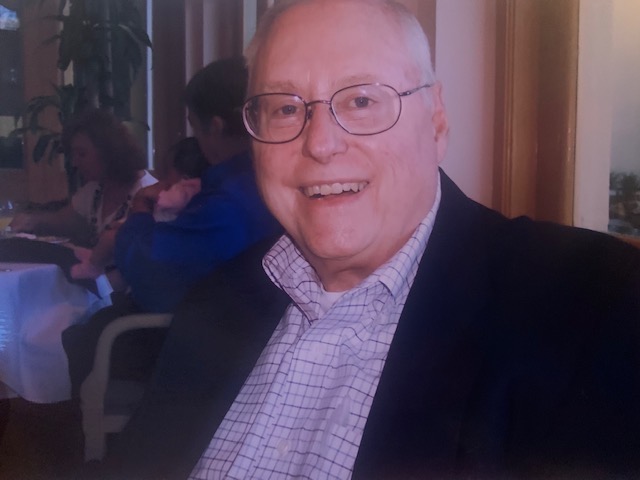
by Kelly Kehoe | Jun 14, 2021 | Membership
Take a moment to imagine a lighthouse. It’s perched on a seaside cliff, overlooking the dark, stormy seas below and weathering tremendous gusts of wind from all sides. Even amidst the most torrential storms, the lighthouse fulfills its core purpose by continuing to cast a bright glow into the distance, giving hope and direction to sailors navigating the turbulent seas on their own vessels.
First Amendment Voice is just like that lighthouse. In 2020, we experienced some of the stormiest moments of our lives, including but not limited to the pandemic, protests, politics, natural disasters, and then some. Like the lighthouse, FAV remained steadfast through these storms by adapting to social distancing regulations with virtual programming alternatives, expanding our trove of valuable resources to reinvigorate civic advocacy efforts, and becoming a beacon of hope for citizens navigating waves of rocky discourses in their own lives.
The seemingly relentless political polarization in the U.S. has only reinforced our mission to invigorate Americans to understand and exercise First Amendment rights through a collaborative campaign of awareness, education, advocacy, and facilitation.
If you’re not yet a member of First Amendment Voice, we need your help. Just as a lighthouse requires people and resources to fulfill its purpose, FAV needs people and resources to ensure we’re able to share our light with others who feel as though they’re drowning in the seas of destructive discourses all around us. Here are just a few of the many reasons why you should join FAV this year:
Access Exclusive Member Perks
FAV offers a tremendous variety of exciting events for the public throughout the year, and many of these events include members-only perks such as the VIP reception after our National Symposium panels in the fall, discounts or special access to FAV workshops, exclusive discussion opportunities, and so much more.
Get Research-Packed Advocacy Resources
Early in 2021, we released our first FAV-exclusive white paper entitled “Pandemic of Polarization: How America’s 2-Party System, Social Media and Our Brains Poisoned Civil Discourse (and What We Can Do About It).” In addition to producing new content with in-depth analyses and research from the most credible sources available, we also offer useful tools and handouts for members to help them become stronger civic advocates in their own communities.
Our blog is free-of-access to members and non-members alike; with your membership, FAV may continue enhancing its efforts to share the most up-to-date, trustworthy and accurate information on issues relating to the First Amendment, political polarization trends, media bias, and civic advocacy both within the U.S. and abroad.
Receive a Free FAV T-Shirt
We currently have an exciting offer for members who sign up for recurring monthly donations of $10 or more: a free FAV t-shirt in your size!
If you’re ready to escape the negativity and become a “light” of civil discourse in your own community, join FAV this year and experience all the benefits our rapidly-growing organization has to offer.

by Kelly Kehoe | Apr 15, 2021 | Uncategorized
As we gear up for our inaugural Edward D. Lowry Award Ceremony on May 21st, we’d like to take the time to reflect on the many civic-minded qualities embodied by the award’s namesake and invite you to consider how you can integrate these principles into your own life.
In addition to overcoming adversity, Ed Lowry was well-known for his tireless dedication to serving others in his community. He was a tremendous source of inspiration for countless people throughout his life, and we can continue his legacy of community service by striving to engage in everyday acts of inspiring courage, service and advocacy.
Encouraging Volunteerism
Ed Lowry was a committed volunteer who consistently went above-and-beyond what anyone could’ve expected from just one person. Ed didn’t simply volunteer for organizations he was personally passionate about; he leveraged his voice and expertise to inspire others to get involved in volunteering as well.
As we gradually move towards some semblance of “normal” in 2021, ask yourself how you can get more involved in supporting community organizations through volunteer opportunities. Maybe you already volunteer once per month for one-day/weekend events such as local park or beach clean-ups, healthcare clinics, food pantry or soup kitchen preparations, exercising dogs for the local animal shelter, collecting supplies for low-income folks, or any of these virtual volunteering opportunities. Do you reach out to others and encourage them to get involved too?
Volunteering doesn’t have to be exclusively performed through an organization, of course. Helping neighbors with groceries, driving seniors to medical appointments or offering to babysit for a busy parent are some of the many ways in which a small action on your part can make a big difference in the lives of others.
Fundraising for Worthy Causes
If your schedule is packed or you have ongoing concerns about Covid-19, there are ways to help others in your community even if you’re not involved in hands-on volunteer efforts. By spreading the word about donation drives and other fundraisers on social media, email or video calls with family and friends, you could create a ripple effect for fundraising initiatives that wouldn’t have happened if you hadn’t shared this information with others in the first place.
For more information on supporting donation drives, GoFundMe published this great list of 25 fundraiser sharing strategies to help you get more creative in your efforts to raise money for organizations and causes you care most about.
Engaging in Civic Advocacy
As a strategic advisor for First Amendment Voice, Ed Lowry was well-known for inspiring others to become more civically engaged in their communities.
Ways to get involved in civic advocacy include:
At FAV we know that you are probably doing many of these things already. Keep up the great work, just like Ed did his entire life, and you will enjoy the satisfaction that comes from serving with purpose and meaning.

by Kelly Kehoe | Mar 23, 2021 | Uncategorized
One of the qualities encapsulated in First Amendment Voice’s Ed Lowry Memorial Award for Citizenship is a person’s ability to overcome setbacks and strive on in the face of adversity. Many of us are no strangers to adversity, especially after one of the most challenging years in recent public memory.
Rather than dwelling on the negative events that happened in 2020 and continued into 2021, we’d like to take this as an opportunity to meaningfully reflect on what adversity is and what we can do to change the ways in which we view and overcome adversity.
What is Adversity?
Adversity is generally described as serious and/or ongoing difficulties and misfortune. It can involve anything from physical, mental or emotional struggles of an individual to the social, legal or economic setbacks experienced by a wider group. Most people face some kind of adversity at many points in their lives, but the extent of the problem and the individual or group’s capacity to remain resilient in the face of adversity varies widely.
Pause for a moment to reflect on how adversity has appeared in your own life over the past year. What challenges have you faced, and how did you successfully overcome them? Which personality traits do you credit for your ability and willingness to strive onward in spite of the obstacles in your way? And if some of these adverse circumstances are still ongoing, what can you do today to resolve them?
Of course, not all types of adversity are resolvable through sheer determination by an individual. While the U.S. has long-embraced the cultural value of personal responsibility and ‘pulling yourself up by your bootstraps,’ it’s important to remember that adversity is often caused by factors outside of our control (such as the pandemic and all the related consequences it has brought with it).
With this in mind, we should renew our focus on being empathetic towards others because we never know what someone might be going through behind the scenes. We can’t control others’ responses to conflict and adversity, but we can compassionately support them and find commonalities in our unique, yet similar struggles.
Reframing Adversity as Opportunity
As former First Lady Michelle Obama said in a college commencement speech in 2016: “You should never view your challenges as a disadvantage. Instead, it’s important for you to understand that your experience facing and overcoming adversity is actually one of your biggest advantages.”
As we discuss in-depth in our FAV-exclusive white paper, some of the best strategies for adjusting our expectations to upsetting or challenging situations involve self-distancing and cognitive reframing. In a nutshell, these techniques involve consciously viewing adverse situations as opportunities for growth and actively identifying which factors are within our control to drive positive changes in our lives.
For example, someone who is laid off could reframe job loss as an opportunity to find more meaningful employment elsewhere, perhaps with a more agreeable boss, better benefits, and greater job satisfaction. We’re not suggesting that you should only look at the bright side when confronted with adversity; it’s a natural human response to feel anxious, disappointed or angry when presented with a seemingly impossible obstacle to overcome. However, you also can’t let yourself get too caught up in the negativity if you genuinely hope to overcome adversity, so reframing how you think about a problem – as an opportunity rather than a disadvantage – is essential for overcoming setbacks in any area of your life.








